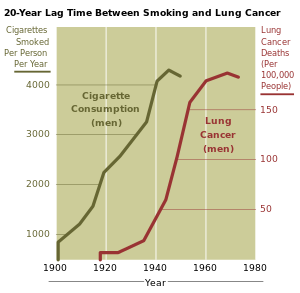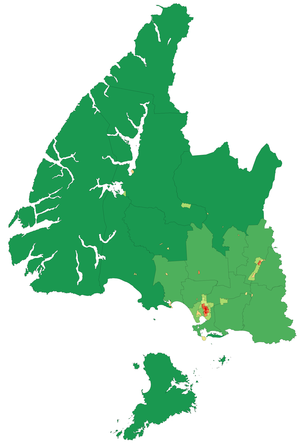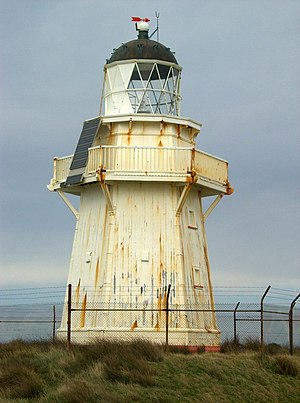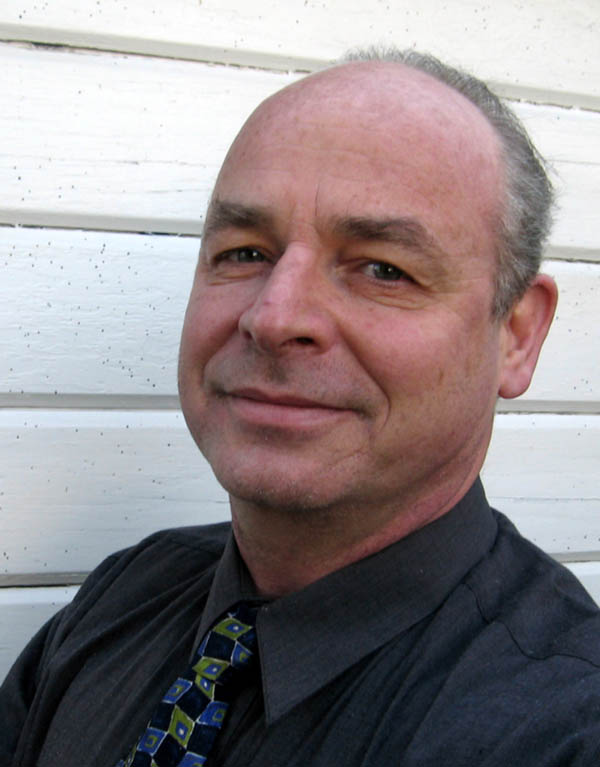 |
Wednesday, December 30, 2009
Seattle Mayor Thinks It's Time To Talk, Christchurch's Doesnt.
Sunday, November 15, 2009
IMECHE C&C - implications for ChCh & NZ
The UK-based Institute of Mechanical Engineers [IMECHE] have just published a new report entitled: - CLIMATE CHANGE HAVE WE LOST THE BATTLE?
www.imeche.org/NR/rdonlyres/77CDE5E4-CE41-4F2C-A706-A630569EE486/0/IMechE_MAG_Report.PDF
In it they say: -
"The [UK] Government's targets and budgets have been set using a top-down approach based on the principle of contraction and convergence.
Effectively calling for a war-time economy,
IMECHE also say: -
"The Institution of Mechanical Engineers supports the principle of contraction and convergence."
From: Aubrey Meyer aubrey@gci.org.uk
ph nz (643) 389 4065 nz cell 027 265 7219
USA ph/cell/txt 213-3006861
Thursday, October 29, 2009
Govt urged to ease up on cannabis (>10 years ago)
| Title: | Evening Post article (NZ) |
| Published On: | 1997-07-22 |
| Source: | The Evening Post (Wellington) |
| Fetched On: | 2008-09-08 14:11:32 |
"Rapid Increase In Illness" From The H1N1 Influenza Virus
CNN Reports President Obama Declares National Emergency To Deal With The "Rapid Increase In Illness" From The H1N1 Influenza Virus; Cannabis Science Continues Progress On Its Research To Show Cannabis Can Reduce Risk of Death from "Swine Flu"
COLORADO SPRINGS, Colo., Oct 26, 2009 -- Cannabis Science Inc. (NASD OTCBB: CBIS | Quote | Chart |News | PowerRating) an emerging pharmaceutical cannabis company, is urging that US government recognize that phytocannabinoid pharmaceutical products can help reduce Adult Respiratory Distress Syndrome (ARDS)-associated deaths from both the Avian and Swine Influenza infections, as President Obama declares a national emergency. President Obama signed the declaration late Friday and announced it Saturday. We urge readers go to: http://www.cnn.com/2009/HEALTH/10/24/h1n1.obama/index.html to read the whole story on the CNN website.
President Obama stated, "The 2009 H1N1 pandemic continues to evolve. The rates of illness continue to rise rapidly within many communities across the nation, and the potential exists for the pandemic to overburden health care resources in some localities." President Obama continued with, "Thus, in recognition of the continuing progression of the pandemic, and in further preparation as a nation, we are taking additional steps to facilitate our response." Cannabis Science, Inc. President & CEO Dr. Robert Melamede stated, "Clearly, there is little time to gear up the mass production of pharmaceutical cannabis products to meet the immediate needs of this national emergency. However, President Obama's new policy of federal tolerance of medical marijuana where is it legal under state laws, makes it possible for Cannabis Science to work with the medical marijuana patients and providers in some states to help develop products to meet patients' needs. If the situation is dire enough to justify calling it a "National Emergency", then surely medical ethics require that we work diligently with all relevant research." Dr. Melamede also deplored efforts in Los Angeles and other areas to close dispensaries and/or ban edibles. "It is hard to imagine a more wrong-headed approach or a worse time to deprive people of access to cannabis edibles. Again, we recommend, based on sound scientific principles, that medical marijuana users should switch to edibles if they come down with an influenza infection. We believe that the irritation associated with the pulmonary route, when a person has an influenza infection, may lead to unnecessary deaths. In contrast, oral administration may prevent many deaths. We hope that due to the magnitude of this pandemic threat, that the FDA will fast track our proposal." Please visit our website www.cannabisscience.com in the next few days as we will be posting a survey for those who encountered the H1N1 and other influenza symptoms and experiences. This Cannabis Science Survey will be designed to acquire anecdotal human data regarding the effects of Medical Marijuana on influenza infections. The company plans to monitor activity, collect data, and report findings in its reports to the FDA.
Cannabis Science H1N1 Swine Flu Formulation: Dr. Melamede explains, "We now know that the endocannabinoid system plays a critical role in maintaining human health. The human body produces Endocannabinoids on demand when they are needed. They help restore homeostasis (biochemical balance). The Cannabis plant produces Phytocannabinoids. When the human body has endocannabinoid deficiencies, it cannot effectively restore the healthy biochemical state needed to counter a particular illness. Phytocannabinoids from the Cannabis plant can replace the deficient endocannabinoid activity in the human body to restore a health-promoting level of cannabinoid activity. Cannabis Science will test its pharmaceutical products with FDA guidance and oversight to determine if it will reduce ARDS-associated deaths from both the Avian and Swine influenza infections."
--
Blair Anderson ‹(•¿•)›
Social Ecologist 'at large'
http://mildgreens.blogspot.com (currently in dispute with Google who removed it!)
http://blairformayor.blogspot.com
http://blair4mayor.com
http://efsdp.org
ph (643) 389 4065 cell 027 265 7219
Friday, October 23, 2009
It is my cultural belief, in respect of use of the 'H'
THE ANCIENT HISTORY OF THE MAORI, HIS MYTHOLOGY AND TRADITIONS. NGA-TI-WHATUA [VOL. IX]
LETTER FROM JAMES MACKAY TO MR. H. SMITH, OCTOBER 1859
I was told that those wild or uncivilized Natives belonged to a tribe called Ngatimamoe, that they had been one of the strongest and most numerous of the aboriginal tribes of the Middle Island, but from the incessant wars which raged between them and the Ngaitahu they had become so reduced in numbers, that the remnant, amounting to about thirty (chiefly men) withdrew to the mountain fortresses, west of Lakes Hawea and Whanaka (Oanaka on charts), from which they could not be driven.
--
Blair Anderson ‹(•¿•)›
Social Ecologist 'at large'
http://mildgreens.blogspot.com/ (currently in dispute with Google who removed it!)
http://blairformayor.blogspot.com/
http://blair4mayor.com/
http://efsdp.org/
ph (643) 389 4065 cell 027 265 7219

Monday, October 12, 2009
Drinking Age Debate Flawed.
No... but one thing has changed. Drug Policy! When the 'drug we drink' was separated from the National Drug Policy formulation processes where highly recommended best practice was to treat ALL drugs 'independent' of legal status. Intense lobbying from the liquor industry saw the separation occur contrary to ALL the best advice, expertise and science.
Our DRUG POLICY FRAMEWORK is flawed. The Law Commission examination of Alcohol in separation from other recreational drug use needs to be more fully explored by the public and MEDIA has an important role to play in doing this. Cannabis for example, is SAFER than alcohol. On that fact alone the social policy on alcohol needs to be informed by cannabis policy. Likewise cannabis policy (also subject to scrutiny by the Law Commission) needs to be informed by Alcohol policy.
The new Restricted Substances Regulations (Oct6 2008) represents an opportunity to have that conversation but MEDIA have steadfastly avoided the implications of having R18 legally regulated recreational psychoactive soft drugs for sale under administration of the Ministry of Health while alcohol is all but banned. (Not that some folk wouldn't agree with...) Such a rule... as NOW exists would to all intents and purposes suggest that such drugs that should be regulated (ie: cannabis, khat, ecstasy, lsd) are indeed SAFER than Alcohol and this use of regulation and thus control would represent an informed, intelligent, science based approach that does more to solve the methamphetamine problem than symbolic bans on pseudoephidrine cold remedies or empty promises that 'treatment', if compulsory, will curtail problematic drug use.
Saturday, October 3, 2009
Marijuana For Binge Drinkers?

Image by ian boyd via Flickr
Pubdate: Mon, 28 Sep 2009
Source: Tufts Daily (MA Edu)
Copyright: 2009 Tufts Daily
Author: Derek Schlom
New Study Explores Possible Benefits Of Marijuana For Binge Drinkers
A controversial new study found that smoking marijuana may improve brain functions.
Before you down that fifth shot of Jagermeister, you might want to fire up a joint. Research shows that compared with alcohol, marijuana causes less brain damage.
In a study completed at the University of California, San Diego, the results of which were published in the current issue of the scientific journal "Neurotoxicology and Teratology," researchers examined the white brain matter of 42 teenage participants. The participants were placed into three groups: those classified as binge drinkers (defined in this case as males who consume five or more drinks in one sitting and females who consume four or more), binge drinkers who also smoked marijuana "regularly" and a control group of those who neither drank nor smoked.
The binge drinkers displayed lower fractional anisotropy (FA) scores - indicating white brain matter damage - in all eight sections of the brain than the control groups, whereas the second group (those who also smoked marijuana) had lower FA scores than the control in only three sections. Additionally, in a finding the researchers termed "surprising," the second group had higher FA scores than the first in seven of the brain sections.
So, how are the experts reacting to these findings? Mason Tvert, co-author of "Marijuana is Safer: So Why Are We Driving People to Drink?" and executive director of the marijuana legalization advocacy group Safer Alternative for Enjoyable Recreation, sees validation in the results.
I find it ironic that marijuana can actually protect you from alcohol," he said. "It's just one more way in which marijuana is safer than alcohol, and I hope this dispels the myth that marijuana kills brain cells when it's actually protecting brain cells from damage. Marijuana gives a temporary euphoric effect, whereas binge drinking causes long-term permanent damage."

Saturday, September 26, 2009
MEDIA, LIES and SOFT DRUGS

Image by publik16 via Flickr
Writing in the journal Science nearly four decades ago, New York State University sociologist Erich Goode documented the media's complicity in maintaining cannabis prohibition.
He observed: "[T]ests and experiments purporting to demonstrate the ravages of marijuana consumption receive enormous attention from the media, and their findings become accepted as fact by the public. But when careful refutations of such research are published, or when later findings contradict the original pathological findings, they tend to be ignored or dismissed."
A glimpse of today's mainstream media landscape indicates that little has changed -- with news outlets continuing to, at best, underreport the publication of scientific studies that undermine the federal government's longstanding pot propaganda and, at worst, ignore them all together.
Here are five recent stories the mainstream media doesn't want you to know about pot:
1. Marijuana Use Is Not Associated With a Rise in Incidences of Schizophrenia
Over the past few years, the worldwide media, as well as federal officials in the United Kingdom, Canada and the U.S. have earnestly promoted the notion that smoking pot induces mental illness.
Perhaps most notably, in 2007 the MSM reported that cannabis "could boost the risk of developing a psychotic illness later in life by about 40 percent" -- a talking point that was also actively promoted by U.S. anti-drug officials.
So, is there any truth to the claim that pot smoking is sparking a dramatic rise in mental illness? Not at all, according to the findings of a study published in July in the journal Schizophrenia Research.
Investigators at the Keele University Medical School in Britain compared trends in marijuana use and incidences of schizophrenia in the United Kingdom from 1996 to 2005. Researchers reported that the "incidence and prevalence of schizophrenia and psychoses were either stable or declining" during this period, even the use of cannabis among the general population was rising.
"[T]he expected rise in diagnoses of schizophrenia and psychoses did not occur over a 10-year period," the authors concluded. "This study does not therefore support the specific causal link between cannabis use and incidence of psychotic disorders. ... This concurs with other reports indicating that increases in population cannabis use have not been followed by increases in psychotic incidence."
As of this writing, a handful of news wire reports in Australia, Canada, and the U.K. have reported on the Keele University study. Notably, no American media outlets covered the story.
2. Marijuana Smoke Doesn't Damage the Lungs Like Tobacco
Everyone knows that smoking pot is as damaging, if not more damaging, to the lungs than puffing cigarettes, right?
Wrong, according to a team of New Zealand investigators writing in the European Respiratory Journal in August.
Researchers at the University of Otago in New Zealand compared the effects of cannabis and tobacco smoke on lung function in over 1,000 adults.
They reported: "Cumulative cannabis use was associated with higher forced vital capacity [the volume of air that can forcibly be blown out after full inspiration], total lung capacity, functional residual capacity [the volume of air present in the lungs at the end of passive expiration] and residual volume.
"Cannabis was also associated with higher airways resistance but not with forced expiratory volume in one second [the maximum volume of air that can be forcibly blown out in the first second during the FVC test], forced expiratory ratio, or transfer factor. These findings were similar amongst those who did not smoke tobacco. ... By contrast, tobacco use was associated with lower forced expiratory volume in one second, lower forced expiratory ratio, lower transfer factor and higher static lung volumes, but not with airways resistance."
They concluded, "Cannabis appears to have different effects on lung function to those of tobacco."
Predictably, the scientists' "inconvenient truth" was not reported in a single media outlet.
3. Cannabis Use Potentially Protects, Rather Than Harms, the Brain
Does smoking pot kill brain cells? Drinking alcohol most certainly does, and many opponents of marijuana-law reform claim that marijuana's adverse effects on the brain are even worse. Are they correct?
Not according to recent findings published this summer in the journal Neurotoxicology and Teratology.
Investigators at the University of California at San Diego examined white matter integrity in adolescents with histories of binge drinking and marijuana use. They reported that binge drinkers (defined as boys who consumed five or more drinks in one sitting, or girls who consumed four or more drinks at one time) showed signs of white matter damage in eight regions of the brain.
By contrast, the binge drinkers who also used marijuana experienced less damage in 7 out of the 8 brain regions.
"Binge drinkers who also use marijuana did not show as consistent a divergence from non-users as did the binge drink-only group," authors concluded. "[It is] possible that marijuana may have some neuroprotective properties in mitigating alcohol-related oxidative stress or excitotoxic cell death."
To date, only a handful of U.S. media outlets -- almost exclusively college newspapers -- have reported the story.
4. Marijuana Is a Terminus, Not a 'Gateway,' to Hard Drug Use
Alarmist claims that experimenting with cannabis will inevitably lead to the use of other illicit drugs persist in the media despite statistical data indicating that the overwhelming majority of those who try pot never go on to use cocaine or heroin.
Moreover, recent research is emerging that indicates that pot may also suppress one's desire to use so-called hard drugs.
In June, Paris researchers writing in the journal Neuropsychopharmacology concluded that the administration of oral THC in animals suppressed sensitivity to opiate dependence.
Also this summer, investigators at the New York State Psychiatric Institute reported in the American Journal on Addictions that drug-treatment subjects who use cannabis intermittently were more likely to adhere to treatment for opioid dependence.
Although a press release for the former study appeared on the Web site physorg.com on July 7, neither study ever gained any traction in the mainstream media.
5. Government's Anti-Pot Ads Encourage, Rather Than Discourage, Marijuana Use
Sure, many of us already knew that the federal government's $2 billion ad campaign targeting pot was failing to dissuade viewers from toking up, but who knew it was this bad?
According to a new study posted online in the journal Health Communication, survey data published by investigators at the Annenberg School for Communication at the University of Pennsylvania found that many of the government's public-service announcements actually encouraged pot use.
Researchers assessed the attitudes of over 600 adolescents, age 12 to 18, after viewing 60 government-funded anti-marijuana television spots.
Specifically, researchers evaluated whether the presence of marijuana-related imagery in the ads (e.g., the handling of marijuana cigarettes or the depiction of marijuana-smoking behavior) were more likely or less likely to discourage viewers' use of cannabis.
Messages that depict teens associating with cannabis are "significantly less effective than others," the researchers found.
"This negative impact of marijuana scenes is not reversed in the presence of strong anti-marijuana arguments in the ads and is mainly present for the group of adolescents who are often targets of such anti-marijuana ads (i.e., high-risk adolescents)," the authors determined. "For this segment of adolescents, including marijuana scenes in anti-marijuana (public-service announcements) may not be a good strategy."
Needless to say, no outlets in the mainstream media -- many of which donated air time to several of the beleaguered ads in question -- have yet to report on the story.
-- MAP Posted-by: Richard Lake
URL: http://www.mapinc.org/drugnews/v09.n885.a01.html
Wednesday, September 23, 2009
Alcohol, Cannabis... Sandals, Jandals.

Image by Kalense Kid via Flickr
"Evidence for the effectiveness and cost–effectiveness of interventions to reduce alcohol-related harm"
- ALCOHOL DRINKING – prevention and control
- HARM REDUCTION
- COST–BENEFIT ANALYSIS
- EVIDENCE-BASED PRACTICE
- PUBLIC POLICY
- HEALTH PROMOTION
- INTERVENTION STUDIES
Saturday, September 19, 2009
On state controlled and regulated cannabis and alcohol.
Copenhagen Considers Legalizing Cannabis - By User
420 Magazine - http://www.420magazine.com/forums/
Friday, September 18, 2009
School Bus, Full Life

(NB: One of the past Principals of AGHS became Labour MP, Hon Marian Hobbs, now retired).

Monday, September 14, 2009
Dunedin Mayor sees SAFER alternatives required for Undies.
ph (643) 389 4065 cell 027 265 7219
Friday, September 11, 2009
Tuesday, September 1, 2009
Age of Consent.

Image via Wikipedia
This judge must be a mate of Phill Goffs.... he wanted the age of consent lowered to 12!
And not without good reason.
Such a move would demonstrate a far more enlightened justice/health approach than is evident now.
While Goff was shot down by one-sided media storm better described as a moral panic, no one seemed to notice that our age of consent laws are 'Victorian' by world standards. They smack of intolerance (that is the USA model after all) and protect youth poorly. Further evidence [such] laws do a very poor job of defining 'morality'. Most of Europe and 'educated' countries like Canada understand this issue. We collectively do not. And because of that, we endanger our children in the mistaken belief 'if it just saves one kid'.
I look forward to a more informed debate surrounding age of consent but doubtless we will lurch on jaw gnashing 'morality in hope' the law if only applied with more retributive 'get tough' teeth - will work eventually.
It will not.
(Canada, AOC is 14 with 2yr difference rule same as proposed by Goff. )
--
Blair Anderson ‹(•¿•)›
Social Ecologist 'at large'
http://mildgreens.blogspot.com
http://blairformayor.blogspot.com
http://blair4mayor.com
http://efsdp.org
ph (643) 389 4065 cell 027 265 7219

Saturday, August 29, 2009
SAFER Choices (for Christchurch/New Zealand?)
 Image via Wikipedia
Image via Wikipedia
Denver could see $1 fine for marijuana possession
Denver goes for Safer Communities ~ Huh? Surely not... The Mayor of Denver chairs this committee!
So why would Christchurch's Bonny Prince Bob Parker [and his fiefdom] not want to discuss why so?
He's for SAFER communities, or is he just a media savy pretence on two legs?

And this on Cancer Society Day....
Investigators from New Zealand recently got widespread media attention for a study contradicting Tashkin's results. "Heavy cannabis users may be at greater risk of chronic lung disease –including cancer– compared to tobacco smokers," is how BBC News summed up the New Zealanders' findings.
(extract from http://www.alternet.org/healthwellness/142271/smoking_marijuana_does_not_cause_lung_cancer/?page=entire )
The very small size of the study –79 smokers took part, 21 of whom smoked cannabis only– was not held against the authors. In fact, the small New Zealand study was given much more coverage by the corporate press than the large UCLA study that preceded it.
 Image via Wikipedia
Image via Wikipedia
Tashkin criticized the New Zealanders' methodology in his talk at Asilomar: "There's some cognitive dissonance associated with the interpretation of their findings. I think this has to do with the belief model among the investigators and –I wish they were here to defend themselves– the integrity of the investigators… They actually published another paper in which they mimicked the design that we used for looking at lung function."
Tashkin spoke from the stage of an airy redwood chapel designed by Julia Morgan. He is pink-cheeked, 70ish, wears wire-rimmed spectacles. "For tobacco they found what you'd expect: a higher risk for lung cancer and a clear dose-response relationship. A 24-fold increase in the people who smoked the most… What about marijuana? If they smoked a small or moderate amount there was no increased risk, in fact slightly less than one. But if they were in the upper third of the group, then their risk was six-fold… A rather surprising finding, and one has to be cautious about interpreting the results because of the very small number of cases -- fourteen— and controls -- four."
Tashkin said the New Zealanders employed "statistical sleight of hand." He deemed it "completely implausible that smokers of only 365 joints of marijuana have a risk for developing lung cancer similar to that of smokers of 7,000 tobacco cigarettes… Their small sample size led to vastly inflated estimates… They had said 'it's ideal to do the study in New Zealand because we have a much higher prevalence of marijuana smoking.' But 88 percent of their controls had never smoked marijuana, whereas 36% of our controls (in Los Angeles) had never smoked marijuana. Why did so few of the controls smoke marijuana? Something fishy about that!"
 Strong words for a UCLA School of Medicine professor!
Strong words for a UCLA School of Medicine professor!
As to the highly promising implication of his own study –that something in marijuana stops damaged cells from becoming malignant— Tashkin noted that an anti-proliferative effect of THC has been observed in cell-culture systems and animal models of brain, breast, prostate, and lung cancer. THC has been shown to promote apoptosis (damaged cells die instead of reproducing) and to counter angiogenesis (the process by which blood vessels are formed —a requirement of tumor growth). Other antioxidants in cannabis may also be involved in countering malignancy, said Tashkin.
 Of course, a certain 'anti-cancer in society public speaker" standing on Christchurch's High Street this afternoon, brought this, and more, to the notice of an engrossed public gallery. All while the 'city ambassadors' continued to ask said offending soapboxer to cease 'standing on the furniture'. The Police were called. The right to stand on the furniture was upheld. As was the right to be anti-cancer!
Of course, a certain 'anti-cancer in society public speaker" standing on Christchurch's High Street this afternoon, brought this, and more, to the notice of an engrossed public gallery. All while the 'city ambassadors' continued to ask said offending soapboxer to cease 'standing on the furniture'. The Police were called. The right to stand on the furniture was upheld. As was the right to be anti-cancer!Blair Anderson ‹(•¿•)›
ph (643) 389 4065 cell 027 265 7219

Friday, August 28, 2009
The Lion of Waipapa was my friend...

and always there for me (and anyone else I took there. )
Endangered New Zealand sea lion shot
17/08/2009 10:19:49 Image via Wikipedia
Image via Wikipedia
 Image via Wikipedia
Image via Wikipedia
August 2009. A New Zealand sea lion and a leopard seal have been found dead on the same stretch of Southland coastline. Both animals died as the result of being shot, leaving staff from the Department of Conservation shocked and saddened.
"It makes no sense why these animals were gunned down and left on the beach to rot," said Department of Conservation Biodiversity Programme Manager Jessyca Bernard. "To find a sea lion at Waipapa Point and then a leopard seal at Waikawa Harbour only a few days later that had been killed in the same way defies explanation."
 The New Zealand sea lion is one of the world's rarest sea lion species and fully protected under the Marine Mammal Protection Act 1978. Offences under the Act carry penalties including fines up to $250,000 or a prison sentence of six months.
The New Zealand sea lion is one of the world's rarest sea lion species and fully protected under the Marine Mammal Protection Act 1978. Offences under the Act carry penalties including fines up to $250,000 or a prison sentence of six months.The Department of Conservation would like to hear from anyone who could help identify persons responsible for the shootings
Tuesday, August 18, 2009
PM’s Q/A? precursor drug ban or good science?
MildGreens Says: August 18th, 2009 at 2:56 pm
Peter Gluckman’s brief was as predictable as it was political. While the words all sounded good on 9-noon Radio New Zealand this morning, there has been no question of applied science to understanding how come it is so prevalent?
Or how come, with hundreds of labs having made all this potent stuff and so many who have tried it, so few people are presenting with problems?
Or what is the connection between violence, unintended consequences and burden on those who have nothing to do with the drug? And what proportion is attributable to the pharmacology and/or the set and setting?
What factors limit access to treatment is impacted by stigmatisation, and how might that affect outcomes?
And of interest to economists in particular, what relations does the illicit status of cannabis have in the prevalence of and direct harms attributable to more harmful drugs?
How might the study of Hawaii, its two pacific islands, with not dissimilar histories of indigenous to the land, same drug rules, and zero tolerance enforcement inform us?
Economics Professor James Roumasset might be a good source. (see his paper on Black Hole Politics)
And seeing as how Sir Peter Gluckman is so usefully flexible in his understandings between the science and ‘realities of politics’ consider these wider implications. Stuff like, where is the National Drug Policy benchmark documents like “cost/benefit analysis”. The Police’s is apparently not to be relied upon, it was another BERL boondoggle ‘academics’ from the science of economics exposed. (both of which we have a LAW COMMISSION inquiring into. )
Now there is some science I could respect.
PS, I have the flu, I am not finding PE particularly effective. There once was a Chinese medicine… it was good for weight loss and as a decongestant. It was so renowned we used science to learn how to make it out of drain cleaner. We used politics to make it expedient to do so. [Particularily in the context of Swine flu (H1N1) or any variant I may have to suffer.]
How do I convince skeptics that my access to off label COLDREX ain't political.Right now I could do with all the Chinese can get me. But I would have to go to NZ Customs to pick it up!
What the hell is wrong with science that ‘academics’ from one end of the country to the other don't line up behind Sir Peter and apply some scientific reason. We seem to be able to do it with Climate Change. ?
Any doubt the about the science behind such an initiative need only Google King County, Seattle AND “drug policy” to see what can happen when the Health and Law sectors have the mettle.
The principal objectives of this effort are: reductions in crime and public disorder; improvement of the public health; better protection of children; and wiser use of scarce public resources.
Sir Peter could video-conference Washington State Senator Roger Goodman.
Now that would make a mighty informing YouTube! Kim Hill, where are ya?
Can the Law Commission protect my right to informed consent: what is the best medicine available for my flu and why is this not a cost attributable to poor drug policy? [The burden is making me feel miserable and my k’nose is still runny. And I can’t do my work less I am prepared to knowingly infect someone. What increased harms are we measuring?]
Perhaps we should have a referendum. The debate would be a whole lot more interesting than hitting your kids, or not.
So many questions, so few answers. Portugal is looking good….

Friday, August 14, 2009
Key's bet each way against the Planet
 Image via Wikipedia
Image via Wikipedia
Any functional profit motivated business would have to drop its emissions by 15% purely due to energy saving efficiencies that would be normal business practice anyway. It represents a do nothing goal state pretending to be fiscally responsible.
When betting against the planet, the planet always wins.
The Stern report made it clear that what ever solution is chosen, it had to be equitable and enduring. To do so NOW was the least cost option and the price of carbon had to have a specific measurable target. But Stern's estimate of 70-90 pounds per tonne range to see the changes required is unlikely to pass any National caucus muster. That according to Stern's percentage of GDP 'in now' [about 1%] to drive a low carbon, less energy economy would place carbon at arround NZ$250 per tonne.
 Image via Wikipedia
Image via Wikipedia
Such a system would be a equitable property rights 'contraction and convergence' whereas Key's Brownlee's, Smith's et al represents the haves; all expansion and divergence. It engages no one other than accountants whose propensity for cost plus is legendary.
Social capital is intergenerational equity, if 40% reduction by 2020 is 'to big', a bridge to far, it will only be so because we waited to long to do what is required to fix it. It is population based stakeholder buy in that is required. Leaving it up to corporate greenwashing is a risk to great to bear.
Smith is a stool pidgeon.
The responsibility lies on Key's caucus's shoulders, not the chosen emissary to Copenhagen.

Wednesday, August 5, 2009
Lest We Forget....
 Image by Matthew Saunders via Flickr
Image by Matthew Saunders via Flickr
Woman charged after savage dog attack
ph (643) 389 4065 cell 027 265 7219








